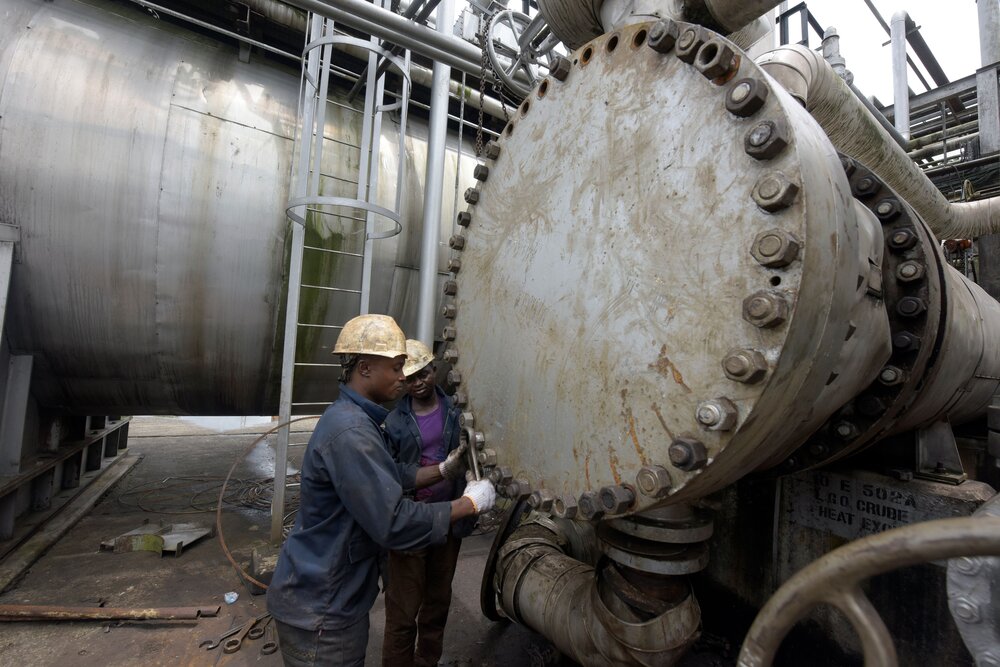THE RUSSIAN invasion of Ukraine has exposed the dependence of the EU on Russian oil and natural gas.
Through this dependence, much of Western Europe has effectively provided the funds that help to fuel the ongoing destruction in Ukraine.
This has led to a re-examination of Europe’s energy options and a scramble for new sources of oil and natural gas that could help Western Europe escape its dependency on Russia.
One of the key regions under interest are the oil rich regions of West and North Africa. For some there is an argument to be made that this is a significant opportunity for African countries that would accelerate economic growth.
For others such hopes are naive while many argue that a scramble for more oil and natural gas could potentially push back the already scant pledges on reducing greenhouse gas emissions made at COP26 in 2021.
Much of the EU has pledged to phase out a third of Russian oil and natural gas by 2023. As a result many oil producing African countries have been positioning themselves in order to meet increasing demand from Europe.
Natural gas reserves in Africa amount to 620 trillion cubic feet with Nigeria holding the largest reserves on the continent at 200 trillion cubic feet.
Many governments in Africa are looking for investment to improve infrastructure for the export of these fossil fuels.
At present Nigeria has been pushing local investors such as the African Export-Import Bank to provide alternative funding sources for an expansion in natural gas production.
Despite the potential opportunities on the surface, much of the African continent is already heavily dependent on the export of primary products that are exported to the West for manufacturing and industry.
The problem is that with already weakened state systems and institutions, it is unclear how African countries will be able to adequately benefit from the extraction and production of oil and natural gas if they are not benefitting now.
Nigeria for example already exports up to 20% of its oil to the U.S. and while the West African country has seen consistently high GDP growth for the last twenty years, this hasn’t translated to a high standard of living for all its citizens.
Oil and gas producing African countries find themselves in an awkward position when it comes to the potential demand from Europe.
There is a risk that in an effort to replace Russian oil and natural gas, the pledges to reduce greenhouse gas emissions will be undermined. This is because there is already an ongoing energy crisis where the price of oil has surpassed $140. This has been exacerbated by the conflict in Ukraine.
Moreover effective green energy is still years away from being able to fully replace oil in the short term. African leaders and policy makers who are aware of their country’s vulnerability to climate change must make a decision as to whether economic growth is more important than the climate crisis that they could contribute toward should they manage to meet European demand for oil and natural gas.
Africa as a whole is already the most vulnerable region to the effects of climate change and the world is at a critical juncture where it needs to reduce greenhouse gas emissions immediately.
But economic development is still a matter of urgency for African policymakers and this will be a delicate tightrope that Africa must balance in the years to come.


Comments Form
1 Comment
African children can still be regularly seen carrying water to their homes early in the morinings.
African women still have to collect firewood for cooking; destroying their environment in the process.
Africa’s Oil and Natural Gas need is desperately needed by the people of Africa.
England had the successful and state funded North Sea Oil and Gas.
Mrs Thatcher sold these government assets in the 1980s.
The new privatised energy companies purchased cheap oil and gas from Russia rather than continue the investment in expensive North Sea energy.
It is for this reason that England and most of Western Europe are dependent on Russia for energy.
Africa’s energy ought to be used to assist the people of Africa.